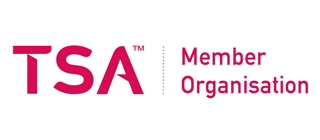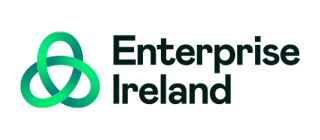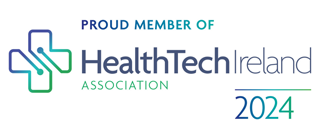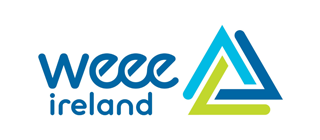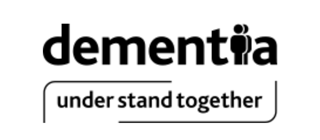.png?width=1200&name=Untitled%20(62%20%C3%97%2036in).png)
As part of Carers Week 2025, CarersWeek released a new report titled ‘Caring about Equality’. The purpose of the report was to highlight the experiences of informal carers, the critical role they play, the inequalities they face and what support is needed to help improve lives of unpaid or family carers.
In our latest blog we explore the impacts being an informal carer can have on both phsyical and mental wellbeing and we signpost helpful resources throughout Ireland the UK for informal carers.
What is a Family or informal Carer?
A family carer is someone who provides ongoing, unpaid personal support to a family member or friend who has a chronic illness, disability, mental health issue, or age-related condition.
According to Care Alliance Ireland over 611,800 people in Ireland identify as family carers. Among them:
- 67,000 are children aged 10-17,
- 70% of carers are caring for a person aged 65+,
- 61% of family carers are women.
Family carers play a crucial role in Ireland’s healthcare system and unfortunately often without recognition or support.
What impact can caring have on individuals?
Caring can take a significant toll on both physical and mental health. Research undertaken and reported in the CarersWeek 2025 report shows that
- 40% of current carers said they had postponed or cancelled a medical appointment, test, scan, treatment or therapy because of caring responsibilities.
- 58% of current and former carers said they face disadvantages in looking after their own physical or mental health.
- 43% of current and former carers said that they face disadvantages in relation to their finances.
These numbers point to a clear need for more robust mental health and wellbeing supports for those who care for others.
Supports for Family Carers
The Dept of Employment Affairs and Social Protection have a number of supports for Family Carers. These supports include:
- Carer’s Allowance
- Care Sharing
- Carer’s Support Grant
- Carer’s Benefit
- Domiciliary Care Allowance
- Household Benefits Package
- Support Welfare Allowance
- Back to Education Allowance
Revenue supports in Ireland for family carers include:
- Incapacitated Child Tax Credit
- Tax Relief on the Costs of Employing a Home Carer
- Home Nursing
- Home Carer Tax Credit
- Disabled Drivers & Disabled Passenger Scheme
The HSE also have a number of supports for people caring for a loved one at home which are:
- Home Support Services
- Health Centres
- Nursing Home Support Scheme
- Medical Card
- Prescription Charges for Medical Card Holders
- GP Visit Cards
- Long-term Illness Scheme
- Drugs Payment Scheme
Other supports and entitlements for people caring for a family member are:
- Disabled Persons Parking Card
- Mobility Allowance
- Senior Alert Scheme
- Better Energy Homes Scheme
- Housing Grants & Schemes
- Housing Adaptation Grant for People with a Disability
- Housing Aid for Older People Scheme
- The European Health Insurance Card
- Cross-border Healthcare Directive
- Treatment Abroad Scheme
- National Freephone Careline 1800 24 07 24
- Carer Support Groups
- Education & Training Opportunities
- Counselling
- Emergency Card Scheme
- Respite
Each of these supports are means tested based on eligibility, income and individual circumstances and are subject to changes.
How HaloCare can Help
Caring for a loved one is a full-time responsibility but you don't have to do it alone.
HaloCare provides care at home solutions that help people live independently and safely in their own homes. Using smart, contactless technology, we monitor wellbeing in real-time and respond immediately in case of falls or medical emergencies.
Our services include:
- Safety. HaloCare keeps clients safe at home with smart, contactless sensors that learn the home environment to help with fall detection. Panic buttons, geolocation technology and appliance management can all be included to keep the home a safe place for loved ones.
- Social & Wellness. Keeping clients connected from the comfort of home has never been easier with the HaloPad. Use the HaloPad to phone, video call or share photos. The HaloPad can also be used for online browsing or accessing tailored content. HaloCare also offers clients a daily ‘Comfort Call’ where clients receive a phone call from members of the Care Hub team, at a time that suits them best.
- Vital Sign Monitoring. HaloCare offers a variety of Vital Sign Monitoring solutions that can be used independently or as part of a customised package to ensure HaloCare meets the unique needs of each client. Vital Signs that can be recorded from the comfort of home include blood pressure, body temperature or oxygen levels.
HaloCare offers reassurance for both carers and their loved ones, helping to bridge the gap between independent living and professional care.
If you or a loved one would benefit from extra support at home, HaloCare is here 24 hours a day, 365 days a year.

.jpg?width=352&name=250917HC01_Halo_BlogCoversx2_V01_RoleOfFamilies%20(1).jpg)
.png?width=352&name=Taking%20Charge%20(3).png)

